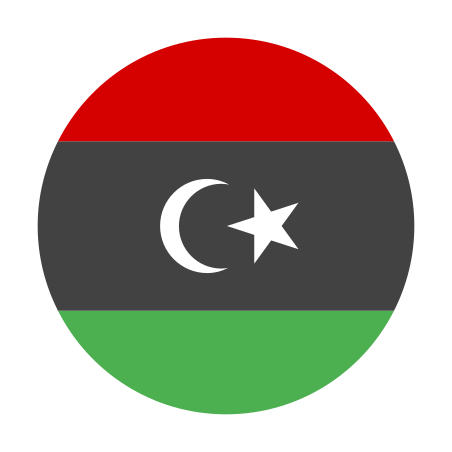Justice seeking and access to justice in Libya: Women deprived of inheritance near Benghazi
Libyan women have the right to inherit land – both in sharia and statutory law – and depriving them of this right (‘disinheritance’) is even forbidden. But what happens in practice? Suliman Ibrahim and Bruno Braak dive deep into one case study to learn how women's attitudes and actions in response to disinheritance are changing.
Libyan women have the right to inherit land – both in sharia and statutory law – and depriving them of this right (‘disinheritance’) is even forbidden. Still, many Libyan women are discouraged by their family members from claiming their inheritance. This study offers a general legal, historical, and cultural context of women’s rights to land and inheritance in Libya. Then, the paper offers a detailed analysis of the case of one elderly woman, Um Aliz, who is deprived of her inheritance and seeks a remedy. Several important changes appear: women’s increasing voice, pragmatic compromises, and weaknesses of Libya’s judiciary pertaining to disinheritance cases.
Um Aliz, the protagonist of this case study, was born in the 1950s in a rural area not far from Benghazi. This was a different time. Land was abundant and people often claimed large swaths. It was no desert, and its red soil and limited rain made barley cultivation possible. Um Aliz recalled how when she was born her whole family, ‘were doing everything on the land, our lives were in it.’
But Libya changed rapidly in the 1950s, especially after oil was discovered in 1959. Jobs were elsewhere now, and one brother took up a job in the army, another in the transport sector. Even as most of the family members left the land, they did not sell it. Instead, they returned periodically to cultivate barley, and one brother sold grazing rights and some of the land’s water to cattle keepers. Otherwise, the land lay uninhabited for years as the family members pursued lives and livelihoods elsewhere. The land as such was not particularly
marketable or valuable.
The land where Um Aliz was born belonged to her larger family, which was in turn divided in three sub-families. Um Aliz’s parents were family relatives, and both part of the larger family. And so according to Libyan law and sharia she would have been entitled to inherit parts of the land both from her father’s and mother’s side.
For decades Um Aliz made no attempt to claim her right to inherit land. One reason is rooted in a local Bedouin custom which her father would frequently remind her of: ‘a woman married to a foreigner (barani) does not inherit’. Crucially, not only non-Libyans qualify as ‘foreigner’ in this logic, but also people of other families. The reasoning behind this expression is that families should ensure that their land remains within the family. So when Um Aliz married to a person from outside the larger family, in this logic she lost her right to inherit land. Um Aliz also felt ashamed to bring up her inheritance with her brothers, regarding such claims-making as immodest.
Yet Libyan women’s resistance to disinheritance appears to become more common. One factor is the rising price of land. Urbanisation has been rapid across Libya, and Benghazi has roughly doubled in size between 2009 and 2019. Land prices have skyrocketed also in the areas surrounding the city. A second factor are the changing attitudes of women, with younger generations being bolder about claim their rights than older women.
Particular to Um Aliz are three additional factors. First, Um Aliz’s children are now mature and married, which means that Um Aliz has an important safety net in case anyone needs to provide for her; a role that would earlier be played by her brothers. Second, Um Aliz’s female maternal cousins have been claiming their inheritance rights, ‘They said they would not leave their mother’s share … And I said what you’re doing, I agree with it [that I run with it]’. Had it not been for these cousins, Um Aliz says that she would probably not have claimed anything. Now her cousins run most of the social risks, and Um Aliz is just a signatory – also joining the claimants but not the instigator. A third more personal factor spurring Um Aliz into action is her current poverty and illness: she urgently needs money to get medical treatment, and this inheritance could help her.
To claim their inheritance, Um Aliz’s cousins initially turned to their male relatives directly. But those who occupy the land insist that it is no longer ‘family land’. On one plot, the occupant says the land was redistributed to his father by a Gaddafi-era property redistribution law, Law 123/1970, after which the occupant simply inherited it. On another, the occupants claim that the land is no longer family land after family members would have sold their shares. In short: on both lands a series of undocumented and contested land transactions are alleged to have (not) taken place. The dispute about present ownership is thereby inevitably about past tenure arrangements, and even the legitimacy of governing actors (i.e., the Gaddafi regime). The absence of paper proof or communal consensus have left family members at loggerheads over these lands.
Met with the intransigence of the current occupants, Um Aliz’s cousins first turned to a well-respected member of their joint family who is also a religious sheikh, to mediate. When that had no effect, they hired a private lawyer – paying 7,000 Libyan dinars up front, with another 8,000 Libyan dinars to be paid if the land would be won.
The court case is still ongoing, but Um Aliz and her son feel ambivalent already. On the one hand, they believe this turn to the court was inevitable given their cousin’s behaviour. Um Aliz: ‘He is the one who spoiled the subject by claiming that [grandfather] had sold ... He will not be deterred except by law.’ Um Aliz expects that the judge will ask her cousin for paper proof to evidence his claims to the land, which she believes he does not have.
On the other hand, Um Aliz feels uneasy about going to court over a family matter; ‘In the name of God, we should not have these problems but what can we do?’ The dispute has already affected family relations. Um Aliz was particularly hurt when the cousin did not attend her daughter’s marriage: ‘He brought his wife, but declined to enter. Why? We only want the right, this is not a mistake in God’s law [Nubu haqna, there is nothing wrong with demanding the right that God has given]’.
Um Aliz’s case alerts us to enduring discrepancies between law and practice; disinheritance continues to be practiced despite being forbidden in sharia and state law. This finding alone also suggests that legal reform efforts alone may not suffice in mitigating the situation for disinherited women. Yet the case study also offers glimmers of hope for women: their bold efforts to claim inheritance rights are sometimes effective at forcing male relatives to offer compromise solutions (offering them money in lieu of property, for example). And the more women claim these rights, the more other women feel empowered to do the same.
This summary was published in Suliman Ibrahim, Bruno Braak and Jan Michiel Otto (2022) 'The Long and Winding Road: Justice seeking and access to justice in Libya', Leiden/Benghazi: Van Vollenhoven Institute/Benghazi Centre for Law and Society Studies.





